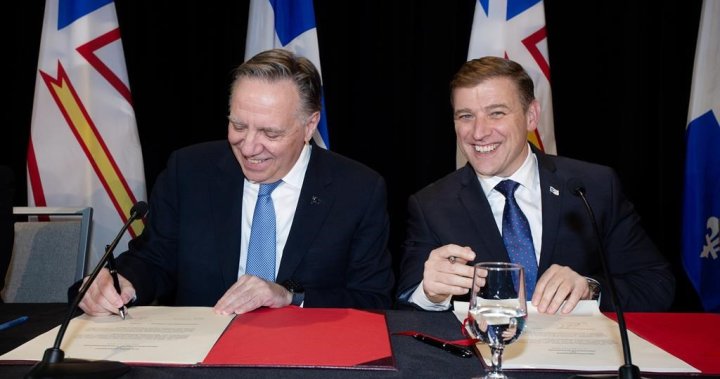A New Dawn for Newfoundland and Labrador’s Energy Sector: Unveiling the Draft Agreement with Hydro-Québec
The political landscape of Newfoundland and Labrador is abuzz with discussions surrounding a momentous draft energy agreement with Hydro-Québec. This landmark deal promises to reshape the province’s energy future and address a long-standing grievance related to the Churchill Falls hydroelectric plant. For four days, the provincial legislature in St. John’s will be the stage for intense debate and scrutiny of the memorandum of understanding (MOU) announced on December 12th. This "extraordinary sitting" of the legislature underscores the significance of this potential agreement for the province’s economic and energy landscape.
The crux of the debate revolves around the terms of the MOU and the potential benefits it holds for Newfoundland and Labrador. The existing 1969 contract, which allowed Hydro-Québec to purchase electricity from Churchill Falls at significantly below-market prices, has long been a source of contention. The new agreement seeks to rectify this historical imbalance by establishing a more equitable pricing structure. This shift is projected to inject a substantial $17 billion into the provincial treasury between 2025 and 2041, averaging approximately $1 billion annually. This influx of revenue holds the potential to transform the province’s finances, considering its current annual budget of $10.4 billion and a net debt burden of $17.7 billion.
The debate has ignited sparks between the ruling Liberal government and the opposition Progressive Conservative Party. Opposition leader Tony Wakeham has criticized the timing of the debate, arguing that it’s premature to proceed without a thorough review of the agreement by independent experts. This demand for external scrutiny reflects concerns about transparency and the need for a comprehensive assessment of the agreement’s long-term implications. While Newfoundland and Labrador Hydro officials maintain that independent firms were consulted during negotiations, Premier Andrew Furey has addressed these concerns by assuring the legislature that an independent expert panel will oversee the final agreement negotiations.
The proposed agreement goes beyond simply revising the pricing structure for Churchill Falls. It lays the groundwork for collaborative development of new energy projects between Hydro-Québec and the provincial utility. This joint venture approach signals a potential shift towards a more integrated and mutually beneficial energy relationship between the two provinces. The specifics of these future projects, including their scope, scale, and potential environmental impact, will undoubtedly be a focal point of the ongoing discussions.
The potential economic windfall from the agreement has generated considerable optimism within the province. The projected $1 billion annual revenue stream could significantly bolster Newfoundland and Labrador’s fiscal position, providing resources for essential services, infrastructure development, and debt reduction. However, alongside the excitement, there’s a cautious undercurrent. The details of the agreement, including the precise pricing mechanisms, the terms of future project development, and the long-term implications for the province’s energy security, are still under scrutiny.
The four-day debate in the legislature represents a pivotal moment for Newfoundland and Labrador. It provides a platform for elected officials to delve into the intricacies of the draft agreement, to voice their concerns, and to seek clarification on its potential impact. The outcome of these deliberations will have far-reaching consequences for the province’s energy future, economic prosperity, and relationship with Hydro-Québec. The coming days will be crucial in determining whether this agreement marks a new era of energy cooperation and prosperity or becomes another chapter in the long and complex history of Churchill Falls. The debate also highlights the crucial role of transparency and independent oversight in ensuring that such agreements serve the best interests of the people of Newfoundland and Labrador.

